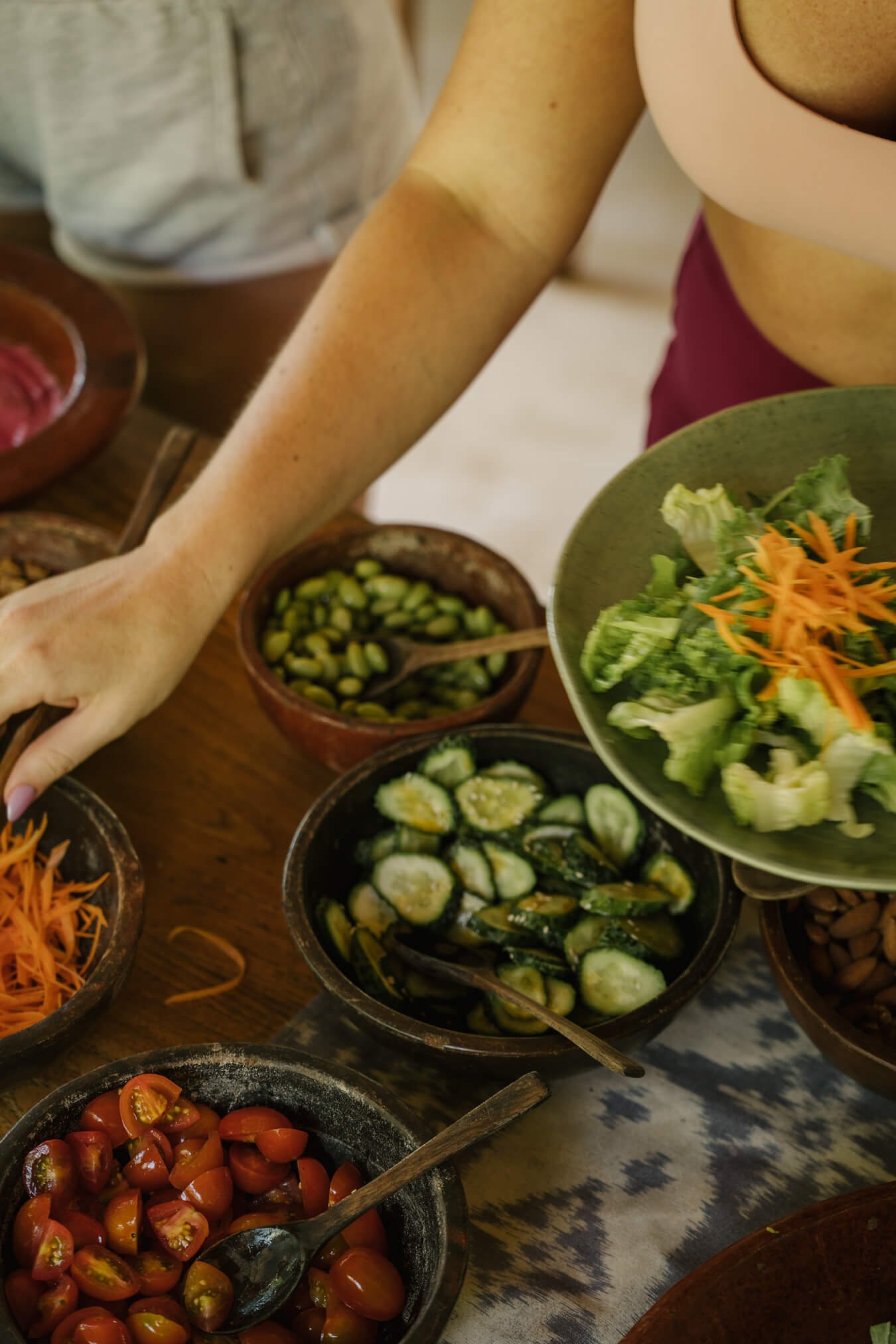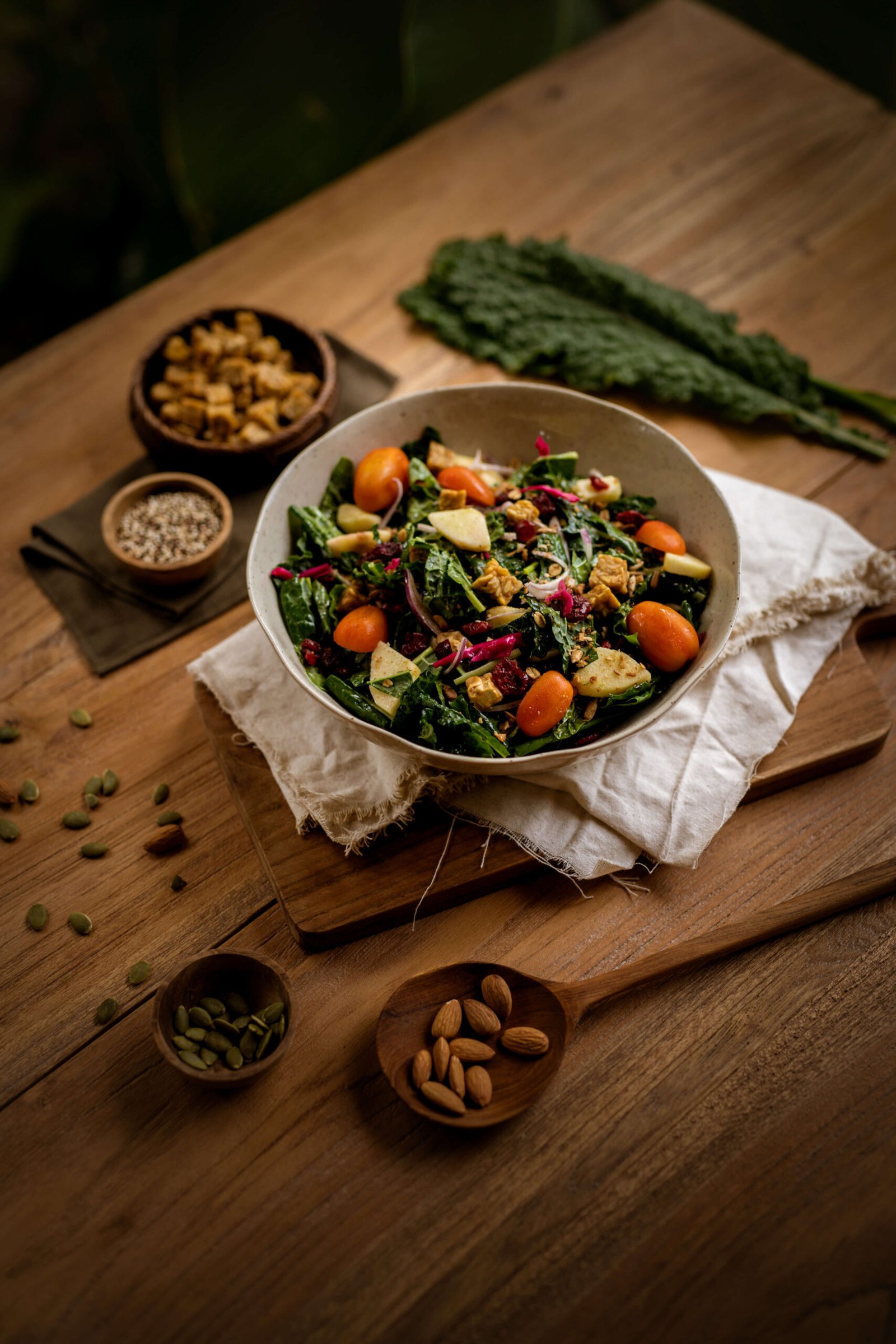Meditation does not start the moment you sit down and close your eyes. It begins much earlier—with the choices you make at the table. Food has a direct impact on how you feel in both body and mind. Since meditation is about observing both with presence, what you eat can either support—or disrupt—your practice.
1. Light digestion, clear mind
Heavy, fried, or processed meals often bring sluggishness, drowsiness, or discomfort when sitting in stillness. A heavy digestion draws much of the body’s vital energy, leaving less clarity and focus for meditation.
This is why many traditions suggest meditating on a light stomach—either with gentle fasting or at least two hours after eating.
2. Calming vs. agitating foods
Certain foods naturally ground the body: whole grains, root vegetables, steamed greens, and nourishing broths. Others—refined sugar, caffeine, or alcohol—stimulate the nervous system and create restlessness, distraction, or agitation. Choosing stable, natural foods helps cultivate the same state inwardly.
3. Warm and cooked foods
In Ayurveda and yogic traditions, gently cooked, warm meals are considered easier to digest and more stabilizing for energy. A simple bowl of rice and tofu, steamed vegetables, or a clear soup can bring comfort without dullness.
4. Conscious hydration
Hydration matters, but so does how you drink. Avoid cold, carbonated, or caffeinated beverages before meditation. Instead, choose warm herbal infusions—ginger, cinnamon, lemongrass—that calm the body and open the senses without overstimulation.
5. Eating with presence
It’s not just what you eat, but how. Eating slowly, chewing well, and avoiding distractions allows the body to process food with ease and prepares the mind for stillness. Mindful eating is itself a meditation.
6. Listening to your body
There is no single correct way to eat before meditating. Some people feel clearer with a light breakfast; others prefer to sit in silence on an empty stomach. The key is awareness: notice whether you feel light, stable, and clear—or heavy and restless. Let the body guide you, gently and without pressure.
🌿 At Yama
During our retreats, we offer a plant-based, nourishing menu designed to support both practice and rest. Ingredients are fresh, local, and unprocessed: seasonal tropical fruits, red rice, artisanal tempeh, marinated tofu, steamed leafy greens, natural ferments, and roasted roots.
Meals are simple, portions balanced, and flavors light yet vibrant—food that sustains without overloading.
Here, eating becomes more than nourishment. It is a form of silence, care, and presence. Another way of listening inward—and a first step toward deeper meditation.





